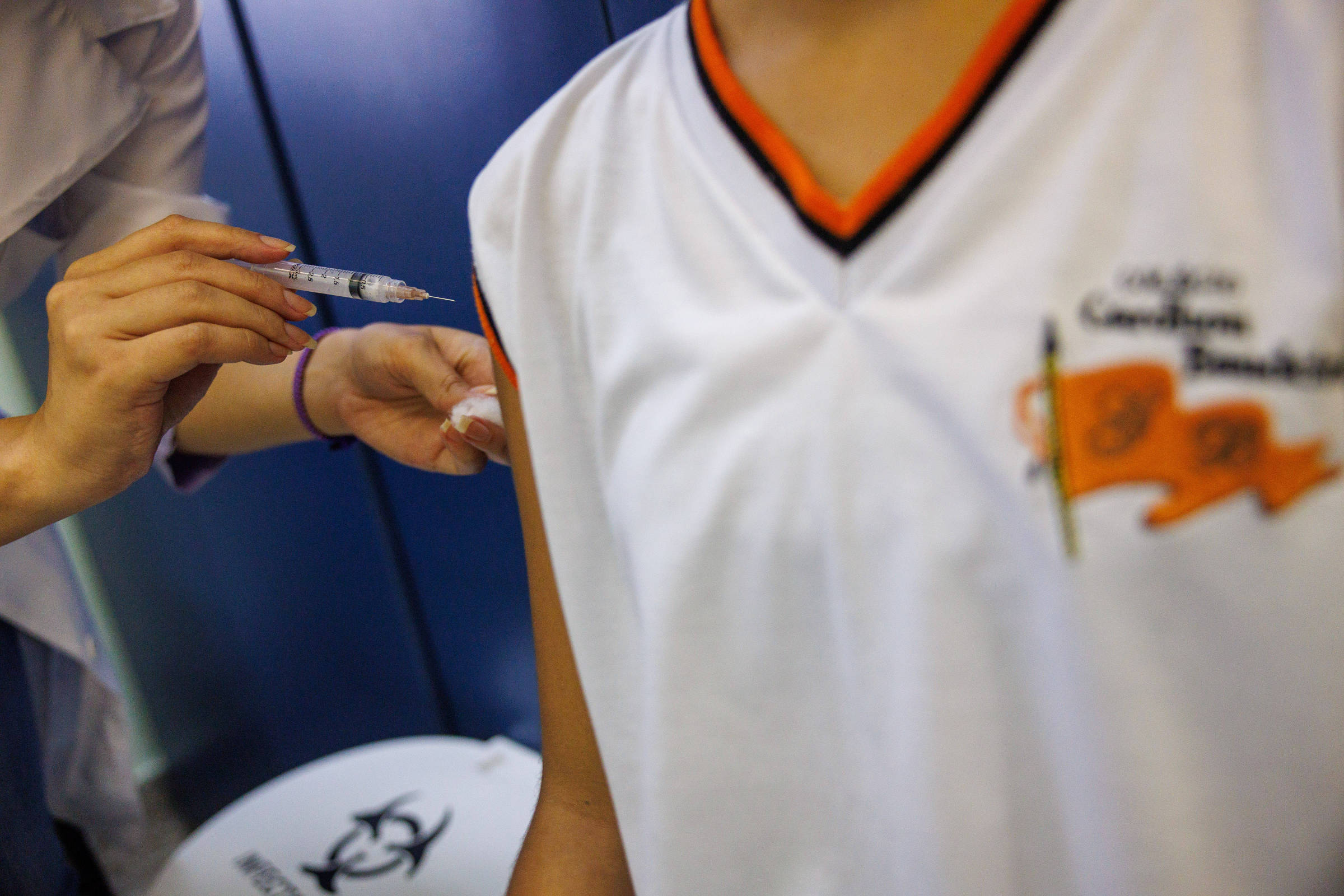
Five out of 11 cities in the Alto Tete region, in São Paulo state, have expanded dengue vaccination to include adolescents aged 12 to 14 years after a decline in adherence to the immunization campaign. Initially, administration was administered to children aged 10–11 years.
The cities that have already expanded the target audience for vaccination are Arauja, Peritiba Merim, Guarulhos, Guararema and Santa Isabel. Mogi das Cruzes and Suzano will start vaccinating the group aged 12 to 14 years from next Monday (11). On Tuesday (12), Poá also begins age group introductions.
On Wednesday (6), the Federal Government published a technical note advising municipalities to expand the age group of the public eligible to receive the vaccine. This measure was taken due to the decrease in demand for the vaccine in health centers.
The 11 cities in Alto Tete are the only ones in the state included in the doses distributed by the administration. The vaccines were intended for municipalities with a high rate of virus transmission and serotype 2 prevalence.
According to the Ministry of Health of São Paulo State, since February 19, more than 20.5 thousand doses have been administered, providing coverage for 25.9% of the eligible population, or about 79 thousand.
The state has 169,780 thousand cases of dengue fever and 47 deaths. A further 154 deaths are being investigated.
The percentage of vaccinations in São Paulo is slightly higher than the national average. Brazil has vaccinated 20.2% of the target population as of this Friday (8). According to the Ministry of Health, 1.2 million doses were distributed to the states, and 249,335 thousand doses were administered.
The country recorded more than 1.3 million probable cases of dengue and 363 confirmed deaths from the disease from January to March 2024. In the same period last year, the country recorded 207,000 records.
Renato Kafouri, vice president of SBIm (Brazilian Society for Immunizations), says that the low immunization rate is linked to the size of the campaign, which targets about 520 municipalities.
“Then there is the issue of communication. You cannot do it at the national level, you have to do communication at the state level and even at the municipal level. In other words, it is not easy to reach the population.”
The doctor also says that vaccination has no ability to change the course of the disease, since the available doses are low. “Vaccinating about 3 million people this year and 4 million people next year will have no impact on dengue numbers. It will obviously protect those who are vaccinated, but it is not the strategy that will change the numbers.”
For Dr. Marcelo Otsuka, member of the Department of Immunization and Legal Pediatrics of the São Paulo Pediatric Society, the decline in adherence is mainly related to the growth of anti-vaccination movements and measures that discourage the practice.
“Unfortunately, in many places it is no longer mandatory for children to update their vaccination schedule to go to school. This is a big problem because we are no longer protecting ourselves from many of the diseases that vaccines prevent and which are a big problem,” including dengue, which has caused deaths in the country.
Otsuka also warns that dengue symptoms in boys and girls may differ from those in adults. According to the doctor, children are more vulnerable to serious conditions that can lead to what is called “shock.”
The lack of specific treatment for dengue fever also hampers disease management. The recommendation is that patients who receive the diagnosis should be hydrated and receive medical monitoring to control organ function until complete recovery.
The doctor also warns of the danger of self-medication, which may worsen the condition. People aged 0 to 2 years, those with comorbidities, and the elderly are most at risk.

“Friendly zombie guru. Avid pop culture scholar. Freelance travel geek. Wannabe troublemaker. Coffee specialist.”






